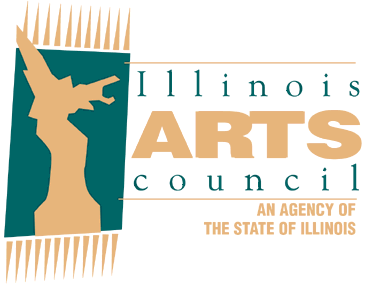About SRPR
SRPR (Spoon River Poetry Review) is a volunteer-based, nonprofit poetry journal housed at Illinois State University in Normal, IL and operated by the Spoon River Poetry Association. It has been in continuous publication since 1976. Each issue publishes new poetry in English and in translation, includes a chapbook-length Illinois Poet showcase and interview, and features an article-length review essay, which investigates three or more books of contemporary poetry that have a formal, thematic, or subject-based connection.
Masthead
Editor: Steve Halle
Editors Emeriti: David Pichaske, Founder (1976–1986), Lucia Cordell Getsi (1986–2006), Bruce Guernsey (2006–2010), Kirstin Hotelling Zona (2010–2023)
Associate Editors: Jenna Goldsmith and Holms Troelstrup
Managing Editor: Phil Spotswood
Review Essay Editor:
Advisory Editors: Laura Cesarco Eglin, Ewa Chrusciel, Gabriel Gudding, Olivia Lott, Amish Trivedi, Michael VanCalbergh
Manuscript Readers: Hannah Kroonblawd, Sarah Lyons Lin, Tessy Ward
Marketing and Publicity Coordinator: Becca Meier
Events Coordinator:
Community Engagement and Education Coordinator:
Production, Design, and Website Maintenance: Publications Unit, Department of English, Illinois State University SRPR Production Director: Holms Troelstrup
History
SRPR was founded by David Pichaske in 1976, making it one of the nation’s oldest continuously published literary journals. The magazine moved to Illinois State University (ISU) in 1986, when Distinguished Professor Lucia Getsi took over the journal’s editorship. The Spoon River Poetry Review became a biannual in 1990, and dropped “Quarterly” from its name in 1993. Lucia served as the magazine’s indefatigable editor for twenty years and in that time, broadened both its scope and reach. The new Spoon River transgressed boundaries between local and international, mainstream and experimental, and included translations and theoretically-informed reviews of contemporary and often small-press or indie books. In addition, Lucia established the annual Editors’ Prize and instituted The Spoon River Poetry Association Poets-in-the-Schools Program, working in schools throughout the state to teach poetry to and hold readings for youth. As a result of Lucia’s work, the magazine garnered a strong international reputation and is now highly competitive, publishing fewer than 2% of the poems submitted.
Upon Lucia’s retirement in 2006, Bruce Guernsey, Distinguished Professor Emeritus from Eastern Illinois State University, assumed the role of editor with the understanding that editorship would eventually return to an ISU faculty member. During his tenure as editor, Bruce built upon the journal’s strengths in a number of ways, emphasizing, for instance, the interface between poetry and pedagogy in the popular “Poets on Teaching” essays he published.
In 2010, Kirstin Hotelling Zona, Associate Professor of English at Illinois State University, became the fourth editor in as many decades of the Spoon River Poetry Review. Drawn in particular to the magazine’s regional roots, Kirstin works to reconceptualize “place” in today’s increasingly globalized, stratified world, and to make this relevance compelling to today’s readers and writers for whom such a term is often analogous to old-school regionalism; as even a cursory reading of today’s SRPR makes clear, we are less interested in regionalism’s attention to realism than to writing that leads us to the limits of our comfort zones so that they are first of all exposed—made palpable and felt. SRPR’s current investment in place is best understood, then, as an interest in emplacement—of the many ways we are situated in and through language, the earth, and each other; in and through our histories and our blind spots. To this end, Kirstin continues SRPR’s long-standing practice of bringing poetry into local schools by teaching at various primary and middle schools throughout Bloomington-Normal, IL. Kirstin also introduced new features to SRPR—such as “The SRPR Interview,” “The SRPR Review Essay,” and Contributors’ Notes—that amplify and update the journal’s mission.
SRPR takes seriously the literary magazine’s historical role as a site for community building—not the creation of a clique or a club, but of a capacious, diverse, and committed community wherein readers and contributors feel at once safe and surprised.

